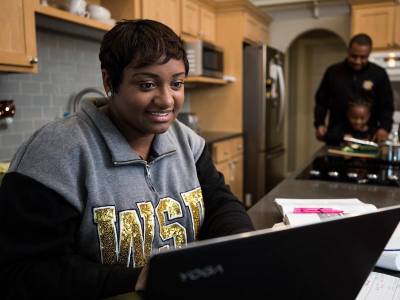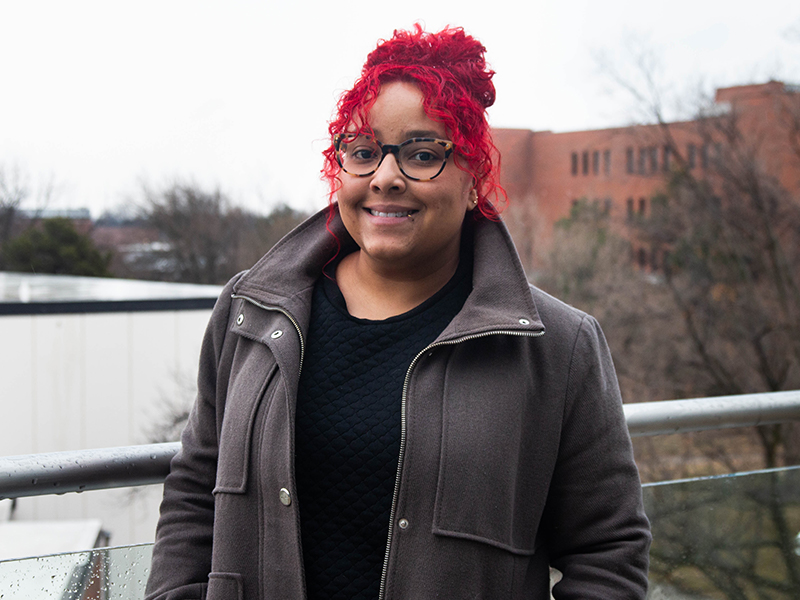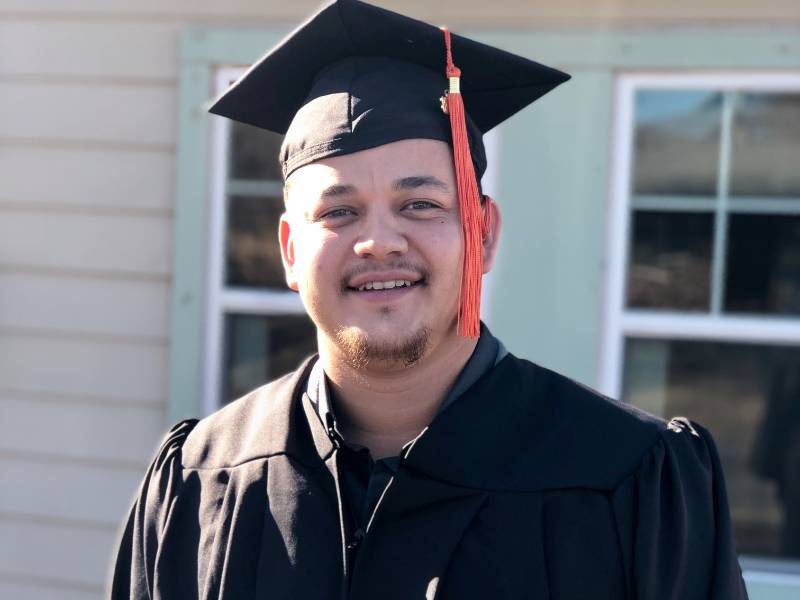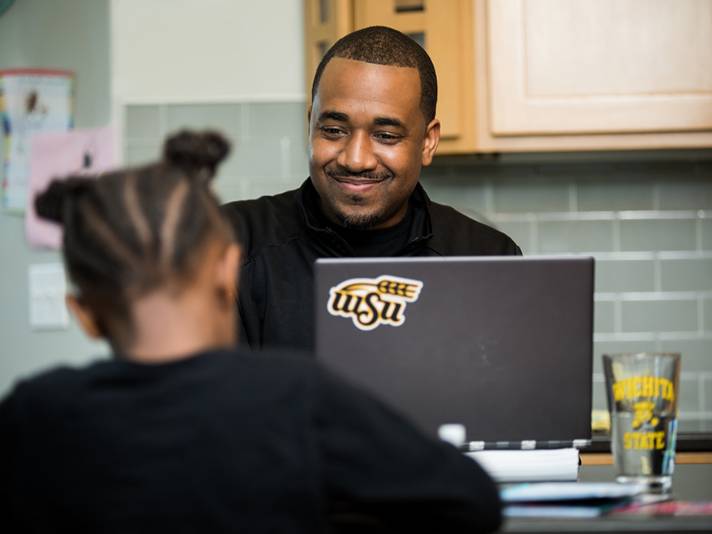When Pamela O'Neal talks with current and prospective students about what it takes to succeed as an adult learner, her advice comes with 15 years of first-hand experience.
All set to start college straight out of high school in 1989, Pamela's course quickly changed when she tore her ACL weeks before she planned to enroll in Sterling College on a volleyball and softball scholarship.
“I was to have surgery the day classes were to start and was told that I was going nowhere for a year,” she says. “I was devastated. All my friends were leaving to go to college and I was going nowhere. After that year passed, I felt I just couldn't play anymore.”
Pamela opted to join the workforce, getting a job at Rand Graphics. But, she says, she never forgot about college, and in 2002, mustered the courage to take her first class at WSU. English 101 led to English 202 – and she was hooked. Five years later, working the whole time at Rand, she graduated with a bachelor's in communication and English literature.
Pamela's dream was to write for a newspaper, but in 2007, nobody was hiring. A professor suggested she get her master's in communication.
“I remember thinking to myself, ‘Can I honestly do that? Am I smart enough to get my master's degree?'”
Best decision ever, she says.
While in grad school, Pamela taught public speaking as a GTA, lectured after she graduated and started working for Communication Upward Bound. She earned another degree in that time – a master's in public health from the KU School of Medicine.
Through her work in health care, Pamela made connections that led her back to Wichita State as communications, public relations and recruitment specialist for WSU's School of Nursing.
She worked there for three years before making the switch to the Office of Adult Learning, where Pamela now works as the office and communications manager. After all her years engrossed in higher education as a student and working adult, this is where Pamela feels most at home.
“I do what I can to encourage and help students who want to get their degree. I know what it's like. I've been there. It's scary, it's intimidating and as an adult, their time is limited,” she says. “They are often working full time, married and taking care of children. It's good to be able to tell them that I can help. Often they appreciate hearing from someone who is a returning adult student.”
Not content with her three degrees, this summer Pamela will start work on her Doctor of Education Leadership degree. She's a little scared, but says she's seen other adult learners overcome bigger hurdles.
And if there's one thing Pamela is used to, it's hard work. Growing up on a dairy farm a few miles north of Conway Springs, the cows had to be milked every day – weekends and holidays included. It's here, she says, where she developed such a strong foundation. A tightknit family that includes three older brothers and two younger sisters also played a vital role.
Nearly 30 years after that fateful day in high school, Pamela has a perspective that often only comes with experience.
“When I tore my ACL, I thought my life was ruined. Looking back, it may have been one of the best things that happened to me,” she says. “I came back to school at 32 years of age. I was a lot more mature and really ready to learn than I would have been at 18.
“I knew what it was like to work, and my future looked gloomy, to say the least, without a college degree. My whole outlook changed when I enrolled for classes and learned that I was smart enough and that I could indeed get a degree.”
Pamela says she would have killed to have an Office of Adult Learning when she was an undergraduate at WSU. Just knowing you have an office where there are others like you, she says, is one of the biggest advantages WSU's adult learning services can offer.
“When I tell students we exist, and that they have a place where they can go to find other students like themselves, you can almost see a weight being lifted off of them,” she says. “WSU is a very special place to me. It's helped me grow and become a better person.”


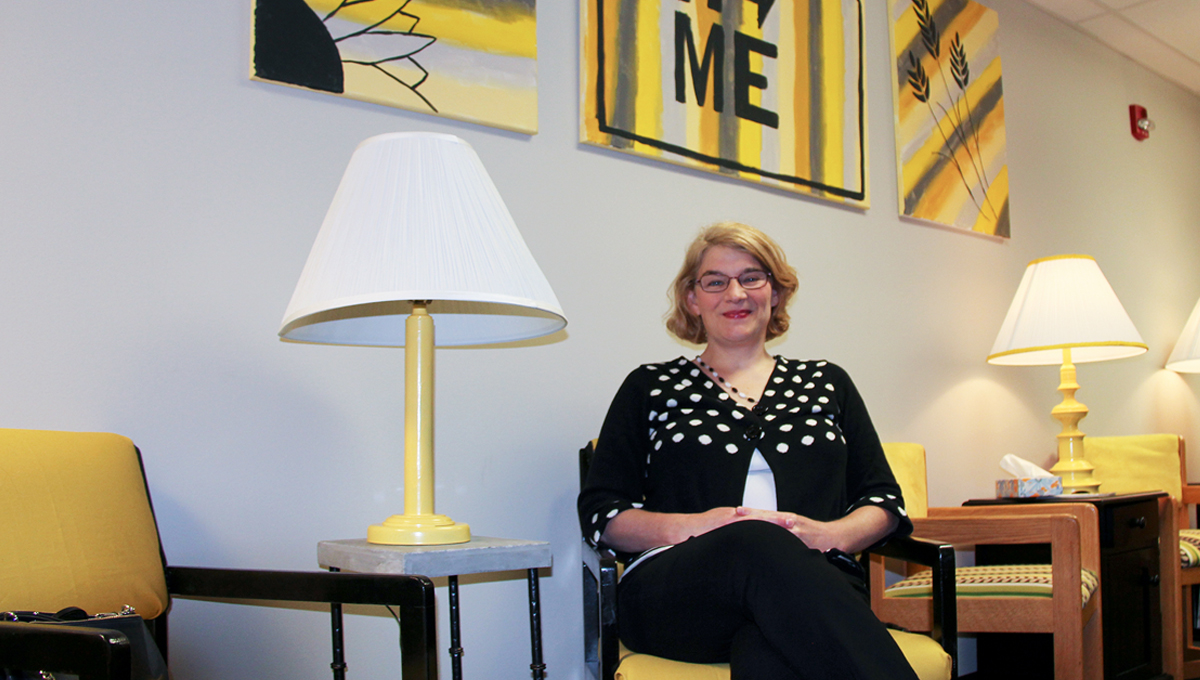 Kristi Hahn-Regan
Kristi Hahn-Regan test Credit
test Credit